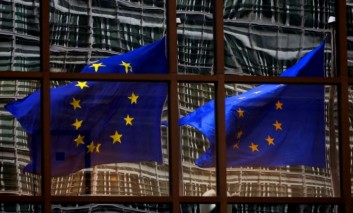The authorities continue bargaining with the West
 The situation has not changed
The situation has not changed

In the short-term, the authorities do not want the EU sanctions’ expansion and show a willingness to engage in a dialogue before the IMF visit to Minsk. Russia, which is not going to broker new political conflicts between the EU and Belarus, also has a stimulating effect.
On October 9th, Belarusian President gave an interview to British newspaper The Independent and the BBC.
The authorities believe, that the mere fact of British media interviewing Lukashenko would indicate Belarus’ willingness to enter into a dialogue with the EU. So far, only a short extract has been published concerning Western policies in the “Arab league”. Lukashenko labeled them as crimes of the West in North Africa and the Middle East, Syria in particular, he also rhetorically questioned the value of democracy, which comes at the cost of human lives.
Despite such harsh rhetoric, which is traditional for Lukashenko and is an attempt to begin bargaining with a high rate, the Belarusian authorities are ready to start negotiations. Thus, on October 8th, the National Centre for Legislation and Legal Research at the Presidential Administration sent out a letter to key organizations with a proposal to consider the recommendations of the UN Human Rights Council to Belarus, concerning the establishment of an institution for the human rights promotion and protection.
In other words, the President and his Administration put up a “good cop, bad cop” act. While the Head of State harshly criticizes Western standards for democracy and human rights, his staff offers to consider applying the same standards in Belarus. Moreover, the initiative of the Administration also remains rhetoric and a non-binding intent.
Minsk believes that such a bold rhetoric, backed up by careful action (two political prisoners, Kovalenko and Syromolotov, were released), will be sufficient to signal readiness to start negotiations with the IMF. Simultaneously, the Belarusian authorities will consider such talks as a mere continuation of trade and therefore will keep the remaining political prisoners in prisons.
It is should be noted that Russia’s position had a significant impact on Belarus. During the summer, the Kremlin made it clear that another escalation of the Belarus-EU conflict was not welcomed. Since then Russia’s position has not changed. Indirectly, this assumption is proved by the fact that the Presidential Administration has disseminated the abovementioned letter the day after a phone conversation between Lukashenko and Putin on the birthday anniversary occasion of the latter.
At Russian expense, Minsk has already compensated the costs of conflict with the West, and therefore would like to shift this conflict to the ‘western field’, where the most profitable “compensator” would be the International Monetary Fund. Thus, on the eve of the EU Council’s meeting on October 15th, the Belarusian authorities are seeking at least not to expand the sanctions, which will create favorable conditions for talks with the IMF mission during its visit to Belarus for post-program monitoring on October 18th – 29th.
Subscribe to our newsletter




Situation in Belarus
Constitutional referendum: main consequences


 Video
Video
How to count the political prisoners: are the new criteria needed?


 Video
Video
Paternalism In Decline, Belarusian Euroscepticism, And The Influence Of Russia


 Video
Video












